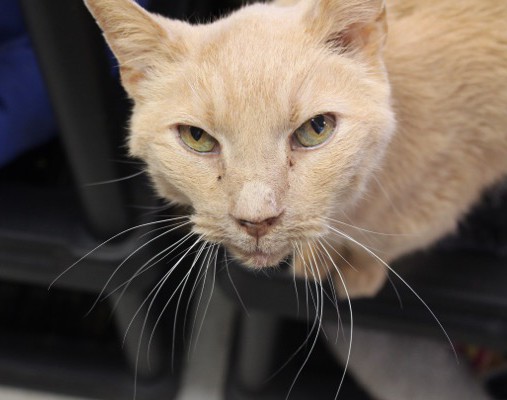When you volunteer in animal rescue you see, hear, and experience some pretty horrible things. It is not an easy passion to have; you also see the worst in humans as it relates to animal neglect, abuse, and disregard. And because of this, some of us tend to assume the worst in others and in the end that only hurts the animals and our overall cause.
I’ve heard comments such as “it’s harder to adopt a cat from that shelter than it would be to adopt a child” or “I tried to adopt a dog but they turned me down so I went to a breeder”. My personal experience went something like this: “I was turned down to adopt a senior cat that I had fallen in love with because I was trying to get pregnant”…”Oh and I had volunteered at that same shelter for nearly 4 years.”
Based on my experience as both an adoption host as well as a potential adopter here are some DO’s and DON’Ts when it comes to shelter’s adoption processes:
DO:
- Be willing to educate potential adopters on things such as indoor/outdoor policies, declawing, and the importance of vet care. Remember that not everyone that loves animals is also in the animal rescue world. Before I started volunteering I had no idea the extent of horrible things that could happened to outdoor cats or how inhumane the declawing of cats really is. If they aren’t in our world than they might just not know but that doesn’t mean they don’t want to do the right thing.
- Have reasonable, standard policies in place such as landlord permission, vet checks, and personal references to ensure the dog or cat is going to a responsible, loving, and safe home.
- Attend adoption events outside of the shelter and/or partner with a retail store willing to host adoptions. One of your adoptable cats or dogs may catch someone’s eye that may not have been looking otherwise!
- Trust your process and then try to trust that people will do the right thing!
DON’T:
- Don’t always assume the worst in someone that is coming to adopt a cat or dog from you. The fact that they chose to adopt is a positive sign in itself!
- Don’t assume that everyone that wants to have children will also give up their pets after they do. I adopted both of my cats when I was just 24 years old and they are not going anywhere, not after marriage and not after a baby. We also adopted our dog 2 years before we had our son and she continues to be a valuable member of our family.
- Don’t turn down a good home because of personal reasons. The only one suffering from this decision is the cat or dog that could have been in a home rather than a shelter (plus the cat or dog that could have been saved in its place!).
- Don’t make your adoption processes so strict that it becomes nearly impossible to find homes for your shelter’s cats or dogs.
While I understand that dogs and cats are occasionally returned by irresponsible or careless individuals and for reasons that don’t seem to make much sense to those of us that truly love animals, it doesn’t mean that you shouldn’t give everyone else a fair shot at providing a loving home. I am confident that my husband and I could have managed to care for our son and an elderly cat throughout his remaining years if only we were given the chance.
Lastly, remember that for every cat or dog you adopt out, another life can be saved. Isn’t that the whole point anyway?
